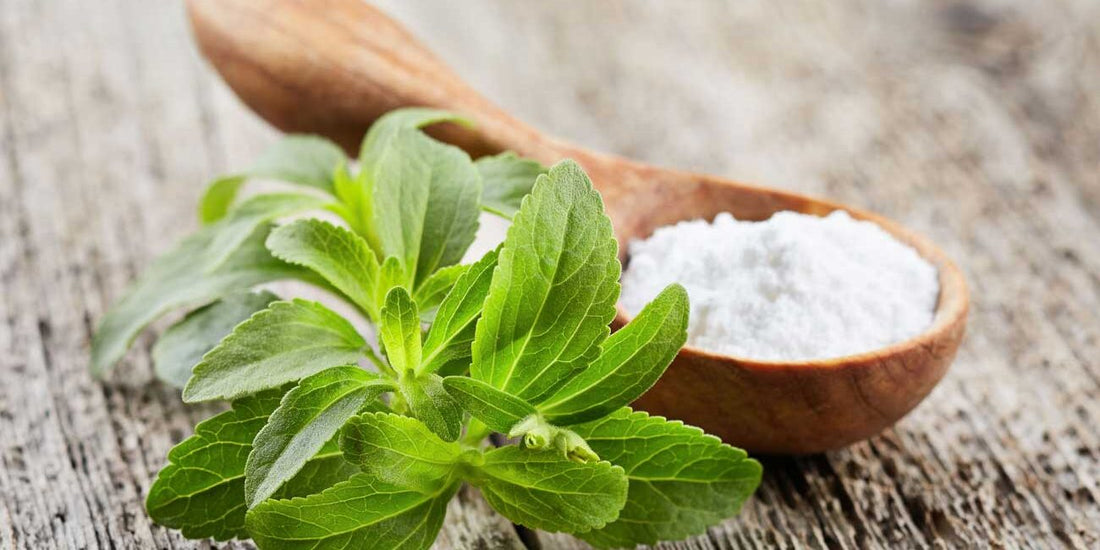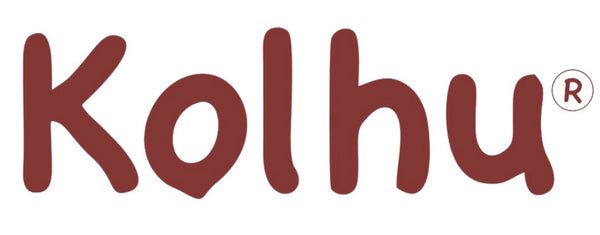
What is Stevia? Is it Safe?
Share
Stevia is a natural sweetener derived from the leaves of the Stevia rebaudiana plant, which is native to South America. The sweetening compounds in stevia, known as steviol glycosides, are much sweeter than sucrose (table sugar) but contribute negligible calories to the diet. Stevia has gained popularity as a sugar substitute for people looking to reduce their calorie or sugar intake.
Stevia is considered safe for consumption by many health organizations, and it is often used as a sugar alternative in various food and beverage products. It does not impact blood sugar levels, making it a suitable option for people with diabetes. Additionally, stevia is known for having a lower impact on dental health compared to regular sugar, as it doesn't contribute to tooth decay.
Stevia is available in various forms, including powdered extracts, liquid drops, and granulated versions, making it a versatile sweetener for different culinary applications.
Is Stevia Safe?
Yes, stevia is generally considered safe for most people when used in moderation. Numerous regulatory agencies, including the U.S. Food and Drug Administration (FDA) and the European Food Safety Authority (EFSA), have approved the use of certain steviol glycosides extracted from the Stevia rebaudiana plant as a sweetener.
Stevia has been used for centuries in South America without reported adverse effects, and extensive research has been conducted to assess its safety. Most studies suggest that stevia is safe for consumption, and it is often recommended as a sugar substitute for individuals looking to reduce their calorie or sugar intake, including those with diabetes.
However, as with any food or food additive, individual reactions may vary. Some people may be sensitive or allergic to stevia, experiencing side effects such as bloating, gastrointestinal discomfort, or a licorice-like aftertaste. If you have concerns or experience any adverse reactions, it's advisable to consult with a healthcare professional.
It's also important to note that the safety of different sweeteners containing stevia may depend on the specific formulation and the presence of other ingredients. Always check the product labels and consult with healthcare professionals if you have specific health concerns or conditions.
Stevia Applications?
Stevia is used as a natural sweetener in various food and beverage applications. Its sweetening compounds, known as steviol glycosides, are much sweeter than sucrose (table sugar) but contribute negligible calories to the diet. Here are some common applications of stevia:
-
Tabletop Sweetener: Stevia is available in powdered or granulated form and can be used as a tabletop sweetener to add sweetness to beverages like coffee and tea or to sprinkle on cereals and fruits.
-
Beverages: Stevia is often used in the production of sugar-free or low-calorie beverages, including soft drinks, flavored water, and teas.
-
Baking: Stevia can be used as a sugar substitute in baking, although it may require adjustments to the recipe due to its concentrated sweetness. There are also commercial blends of stevia with bulking agents designed for baking.
-
Desserts and Confections: Stevia is used in the production of sugar-free or reduced-sugar desserts and confections, such as cookies, cakes, and chocolates.
-
Dairy Products: Stevia is incorporated into some dairy products like yogurt, ice cream, and milk-based beverages to reduce sugar content.
-
Condiments and Sauces: Some manufacturers use stevia in the production of ketchup, barbecue sauce, and other condiments to provide sweetness without the added calories of sugar.
-
Snack Foods: Stevia can be found in sugar-free or reduced-sugar versions of snack foods, such as energy bars, granola bars, and low-calorie snacks.
-
Flavored Water and Sports Drinks: Stevia is often used in the production of flavored water and sports drinks to enhance sweetness without the use of traditional sugars.
-
Health and Wellness Products: Stevia is sometimes used in health and wellness products, such as dietary supplements and herbal teas.
It's important to note that while stevia is a popular natural sweetener, individual taste preferences may vary, and some people may detect a slight aftertaste. Additionally, the availability of stevia-sweetened products may vary by region and brand.
